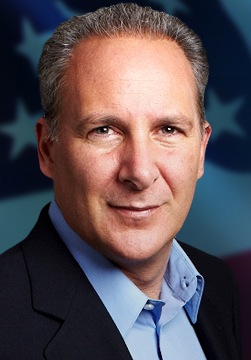The Reality of Stagflation
Now that the Fed has raised rates to 5.25%, and has left the door open for future increases, the overriding concern is that over-tightening will tip the economy into recession. However, given the state of our imbalanced economy, a recession is not only inevitable, but absolutely necessary, and will occur no matter what the Fed does. Furthermore, the coming recession will not come about because the Fed went too far, but because it did not go far enough.
The U.S. economy suffers from extreme economic imbalances that must be resolved. The longer they persist, the more difficult and painful their ultimate resolution will be. The imbalances result primarily from an excess of consumption and borrowing, and insufficient savings and production, and can only be resolved by less of the former and more of the latter. Recession is not the only way to reduce consumption, but since our economy is 70% consumption, any noticeable dip in consumption will lead to recession. The Fed should not prevent this from occurring any more than a clinician at a rehabilitation center should try to prevent a patient from suffering withdrawal by giving him with more heroin.
When the recession occurs it will not be the result of the recent run of Fed rate hikes, but the irresponsible manner in which it lowered them, and kept them low, in the first place. One common misperception is that given the absence of wage pressures, Bernanke is over-reacting to a non-existent inflation threat. However, this naïve view misses the point that rising wages, just like other prices (wages are the price paid for labor), do not cause inflation, but result from it. More importantly, wages usually are among the last prices to adjust upwards in response to inflation, which is one reason that inflation is so damaging. Waiting for an up tick in wages to confirm inflation is analogous to waiting for the caboose to evidence an oncoming train.
Given the current post-industrial state of the U.S. economy, the gap between wages and the cost of living will likely grow more than in prior inflationary periods, making the current experience that much more painful. Economists are also mistaken in their belief that a weakening economy will counteract inflationary pressures. This overlooks the fact that a weakening U.S. dollar will stimulate demand abroad at the same time it restrains it here at home. So even as Americans consume less, prices will continue to rise as they are forced to compete with wealthier foreigners for scarce consumer goods.
Another major problem is that the housing bubble has finally burst. Thus far it has only produced a slow leak, but by next year the air will be rushing out with gale force winds. Because the loss of paper wealth and the purchasing power associated with it could potentially produce a recession, some argue that the Fed should pause. Ironically, one of the only remaining props in the housing market is the belief that the Fed will keep raising rates, which pushes remaining home buyers to buy before mortgage rates move up. However, once the general perception is that the Fed is done, this last remaining prop will be gone.
If Bernanke tries to borrow from Greenspan's playbook and attempts to prevent or mitigate the severity of the coming recession, the excess liquidity will not simply move into another asset class, as it did from stocks to real estate, but into real stuff, such as commodities and consumer goods. As far as the Fed is concerned, it has now reached a monetary divide where all roads lead to stagflation.
Don't wait for the signs to appear. Protect your wealth and preserve you purchasing power before it's too late. Download my free research report on the powerful case for investing in foreign equities available atwww.researchreportone.com .


















